

These Are The Surprising Jobs You'll Be Doing By The 2030s. 90% Of People Can't Pronounce This Whole Poem. You Have To Try It. Self-Sabotage in the Academic Career. Pogo recognized long ago that we often are our own worst enemies.
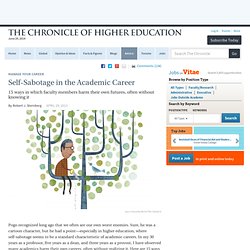
Sure, he was a cartoon character, but he had a point—especially in higher education, where self-sabotage seems to be a standard characteristic of academic careers. In my 30 years as a professor, five years as a dean, and three years as a provost, I have observed many academics harm their own careers, often without realizing it. Here are 15 ways in which you can be most self-destructive. 1. You don't seek out multiple mentors.Too many faculty members sit back and wait for guidance and advice from their department heads or promotion committees. 2. Anglia Ruskin University Library - Harvard System.
Any in-text reference should include the authorship and the year of the work.
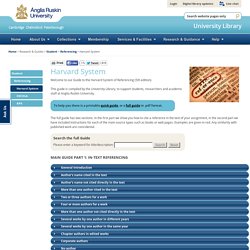
Depending on the nature of the sentence/paragraph that is being written, references to sources may be cited in the text as described below: Additional support on how to introduce such references is available from Student Support in their guide. When making reference to an author's whole work in your text, it is sufficient to give the name followed by the year of publication of their work: When writing for a professional publication, it is good practice to make reference to other relevant published work.
This view has been supported by Cormack (1994). However, where you are mentioning a particular part of the work, and making direct or indirect reference to this, a page reference should be included: Cormack (1994, pp.32-33) states that "when writing for a professional readership, writers invariably make reference to already published works". Individual Consultations for Academic Skills Support with the Learning Centre. When are consultations held?
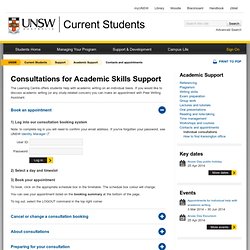
During Semesters 1 and 2, The Learning Centre consultation hours are: Monday to Thursday 10am - 5pmFriday 10am - 1pm Each consultation is 50 minutes long. www.psy.gla.ac.uk/~steve/rap/NicolDraperTransf4.pdf. www.ippr.org/images/media/files/publication/2013/04/avalanche-is-coming_Mar2013_10432.pdf. Practice-Based Research, Digital Art and Problem Based Learning: A Dialogue. Original Citation: Miles, Adrian, and Mark Amerika.
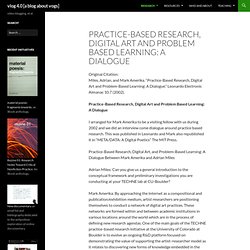
“Practice-Based Research, Digital Art and Problem-Based Learning: A Dialogue.” Leonardo Electronic Almanac 10.7 (2002). Practice-Based Research, Digital Art and Problem Based Learning: A Dialogue I arranged for Mark Amerika to be a visiting fellow with us during 2002 and we did an interview come dialogue around practice based research. This was published in Leonardo and Mark also republished it in “META/DATA: A Digital Poetics” The MIT Press. Practice-Based Research, Digital Art, and Problem-Based Learning: A Dialogue Between Mark Amerika and Adrian Miles Adrian Miles: Can you give us a general introduction to the conceptual framework and preliminary investigations you are conducting at your TECHNE lab at CU-Boulder? Mark Amerika: By approaching the Internet as a compositional and publication/exhibition medium, artist researchers are positioning themselves to conduct a network of digital art practices. Chaos theory and the Larrikin Princip - Universitetsforlaget.
This lively, accessible book applies ideas from chaos and complexity theory to core issues inorganisation studies.
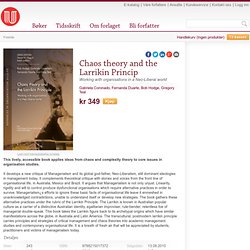
It develops a new critique of Managerialism and its global god-father, Neo-Liberalism, still dominant ideologies in management today. It complements theoretical critique with stories and voices from the front line of organisational life, in Australia, Mexico and Brazil. It argues that Managerialism is not only unjust. Linearity, rigidity and will to control produce dysfunctional organisations which require alternative practices in order to survive. Managerialism¿s efforts to ignore these basic facts of organisational life leave it enmeshed in unacknowledged contradictions, unable to understand itself or develop new strategies. (Page 3 of 38) - Hot Glass: Imagination in Glassblowing: A New Ethnographic Look at an Art authored by O'Connor, Erin.